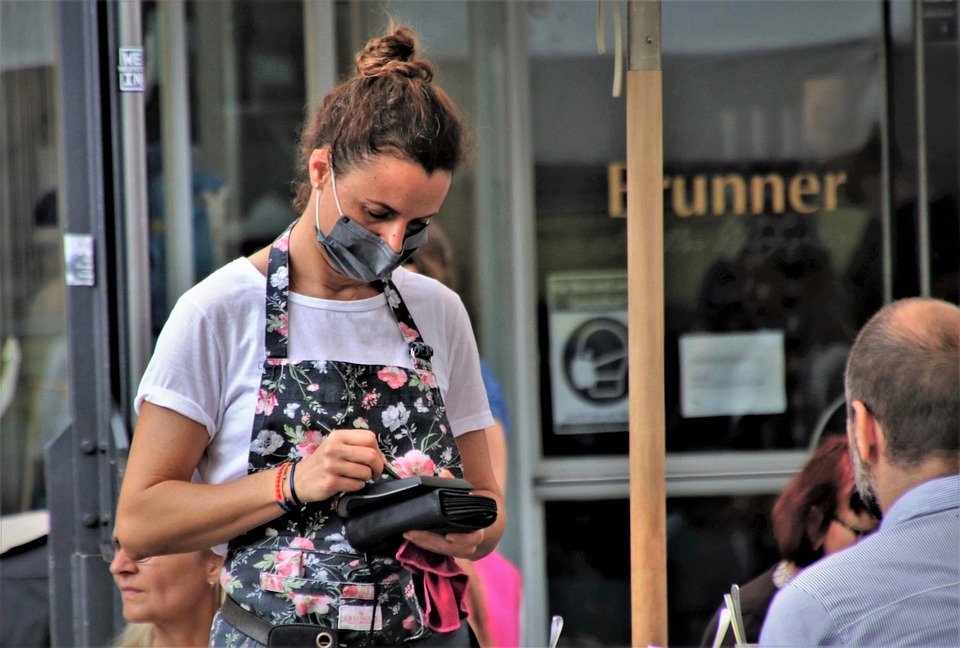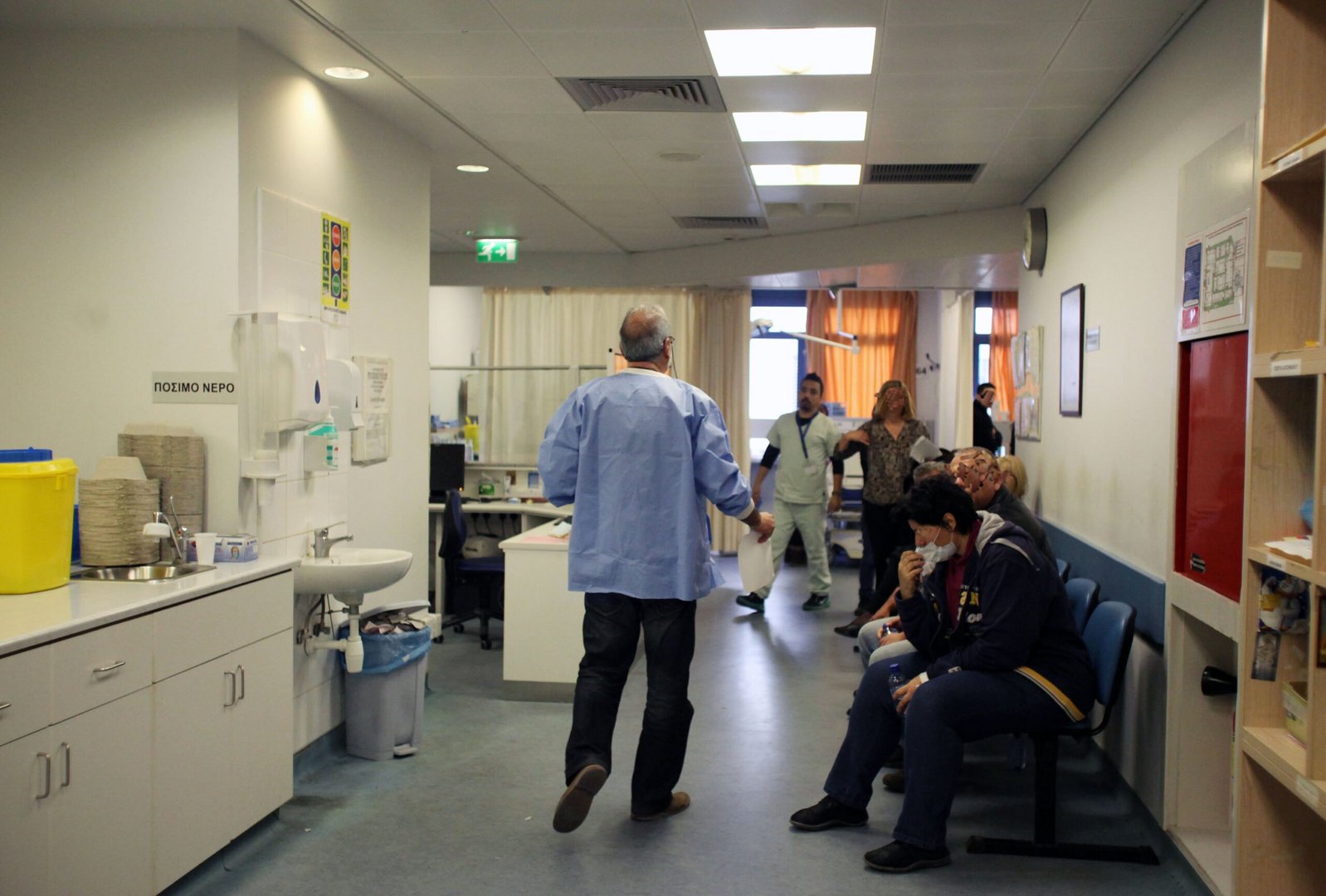Cyprus remains deficient in many aspects largely due to the size of its shadow economy
By Les Manison
The ageing of populations and the devastating socio/economic effects of the Covid pandemic and financial crises all point to the need to build robust “care economies”. Indeed, the International Labour Organisation is calling for “urgent action to prevent a looming global care crisis”.
But what is the care economy? It involves activities and work in caring for children, in supporting the elderly, in providing physical and mental health care, and in educating, as well as in supplying paid and unpaid personal, social and domestic services.
During the pandemic of the last 18 months access to care has been crucial for people to continue to work and care for their families, while the absence of care has contributed to declines in labour force participation and employment, particularly for women and migrant workers intensifying gender inequality and racism. And the need to strengthen the care economy in many countries has been magnified by the ageing of their populations and the scarring effects of the global financial and euro area crises reflected strikingly in a lack of decent job opportunities and affordable housing, particularly for the young.
Despite the increasing demand for care, the current systems and policies to support the care economy in most countries remain inadequate. Most notably, care workers remain underpaid and undervalued, contributing to high attrition rates and influencing the quality of care. Indeed, the two crises of a lack of good care and a lack of good jobs co-exist and, consequently, investing in the care economy would create positive feedback allowing families to find quality care and care workers to find quality jobs.
Cyprus situation
What is the situation regarding the strength of the care economy in Cyprus? According to Eurostat figures the Cyprus government’s expenditure on social protection and health care before the Covid pandemic in 2019 totalled 17.2 per cent of GDP, well below the average of 26.3 per cent for the 28 EU members. In contrast, Cyprus government expenditure on education at 5.4 per cent of GDP in 2019 compared with an average of 4.7 per cent for 28 EU members.
While figures for government outlays suggest that the care economy of Cyprus is relatively weak compared with most other European countries other factors effectively make its care economy somewhat stronger. In fact, large private sums are spent on migrant workers in caring for the elderly and children of working parents. Furthermore, the close and extended family systems of Cyprus and other southern Mediterranean countries provide much more socio/economic support to their relatives and friends than in northern European countries.
Furthermore, as from 2019 a national health system (Gesy) was introduced in phases in Cyprus that led to increased outlays on health care. Indeed, government expenditure on Gesy has increased from 1.3 per cent of GDP in 2019 to 4.0 per cent in 2020, and is estimated to rise to around 5.5 per cent of GDP in 2021.
Notwithstanding, the care economy in Cyprus remains deficient in many aspects. A large informal sector of economic activity exists in Cyprus. A study by University of Cyprus academics indicates that using the electricity consumption method, the size of the “shadow economy” averaged around 29 per cent of official GDP over the years 2012 to 2018. Participants in this economy mostly earn low incomes, have little job security, and by definition do not have access to official support in the form of pensions and unemployment and other benefits. However, a scheme does exist enabling the payment of a minimum guaranteed income to eligible Cyprus residents, thus providing some support for lowly paid workers in the informal economy as well as for unpaid work including that of house wives.
Furthermore, the uneven impact of the repercussions of the Covid pandemic on various households and businesses have exacerbated inequalities and exposed deficiencies in the care economy of Cyprus. With economic activity in the informal sector slumping, mainly owing to lockdowns, businesses and employees therein have not been compensated with government financial support owing to their being outside the social security system and, accordingly, suffering more relative to their counterparts in the formal sector. And with lowly paid employees, particularly females and migrant workers in the retail and hospitality and leisure sectors, being disproportionately subject to dismissals, income and gender inequalities have widened.
Moreover, abstracting from the considerable temporary fiscal support provided to households and businesses suffering from the Covid pandemic related economic crises, the strength of the care economy in Cyprus in more normal times is weakened by the relatively low level of government social benefits. With the minimum guaranteed monthly income only at 480 euro for an eligible applicant plus much smaller amounts for spouse and dependent children and unemployment benefits at 60 per cent of basic weekly earnings and lasting only up to 156 days, many persons run the risk of being driven into poverty in the absence of substantial support from their extended families and friends. And with incomes of private sector employees falling on average by more than 10 per cent over the last 18 months and the cost of living rising, the ability of many Cypriots to provide such social support is diminishing.
Strengthening the care economy
Hence, improving the care economy would seem to require, among other things, the provision of more generous government benefits. Without reducing significantly other government expenditures, funds are not available for raising sustainably the level of social benefits, given the current number of beneficiaries. As argued in previous articles there is a compelling need to enhance standards of social protection and health care in Cyprus toward levels in northern European countries through funding from higher revenues obtained from tax reforms and serious action in combatting widespread tax evasion.
And, most importantly, the increased provision of decent job opportunities through reforms and policies to support the sustained and inclusive growth of the economy would not only contribute to reducing inequalities, but should considerably decrease the number of persons applying for social benefits and help alleviate the strain on social security funds. These policies should include actions to augment female labour participation by improving child care and flexible work arrangements as well as enhancing job search assistance for younger persons.
But allocating more funds does not necessarily improve the care economy. The strength of the care economy depends on the quality of the services provided. In this respect, the government allocates more resources to education than most EU members, yet the quality of primary and secondary school education appears to be deteriorating and below that of many countries. Care workers including teachers need to be offering high quality services, which at the same time should be affordable to the general public.
The government requires resources to not only pay for high quality care workers, but also needs funds and good management for producing efficient systems. Already, Gesy exhibits many deficiencies including doctors and mushrooming clinics in the system being overpaid, while other care workers such as nurses are underpaid. And it is concerning that the current operation of Gesy is contributing to mounting government deficits with Gesy expenditures as estimated by the IMF likely to exceed Gesy revenues by nearly 500 million euro in 2021. Consequently, in the absence of a substantial and sustained increase in government revenues, funds for improving other areas of the care economy including social protection in Cyprus could be seriously depleted.
Reference: Chris Andreou, Elena Andreou, Stephanie Michael & George Syrichas, “The Shadow Economy in Cyprus”, University of Cyprus, Economics Research Centre, Economic Policy Papers, No. 07-19, December 2019.
Leslie G Manison is an economist and financial analyst, specialising in macroeconomic policy analysis, bank viability assessments and international financial relations. He is a former senior economist at the International Monetary Fund, an ex-advisor at the Cyprus finance ministry and a former senior advisor at the Central Bank of Cyprus








Click here to change your cookie preferences